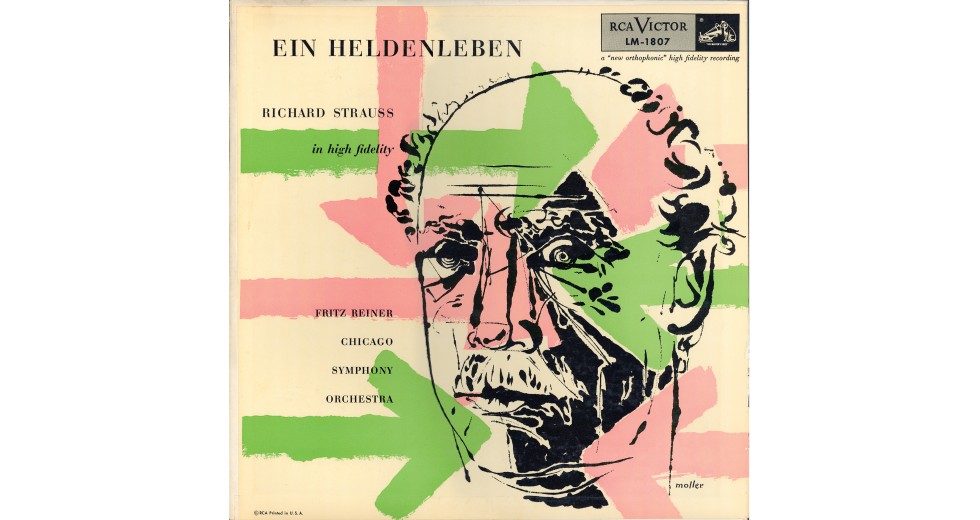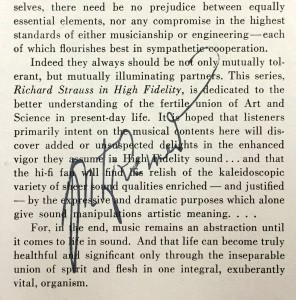
On March 6, 1954, Fritz Reiner and the Orchestra recorded together for the first time. For RCA at Orchestra Hall, they committed to disc two works by Richard Strauss: the Dance of the Seven Veils from Salome and Ein Heldenleben.
“A single condenser microphone, noted for its uniform response and broad pick-up, was suspended approximately sixteen feet above the conductor’s podium to secure the exact balance desired by Dr. Reiner between instrumental choirs of the Orchestra,” according to the liner notes from the original RCA release. “At the time this recording was made, a special microphone set-up was used to make a separate stereophonic recording of the same performance as part of RCA Victor’s continuing policy of development and research in recording techniques.”
“Reiner brought out the opulence of Strauss’s orchestration but never wallowed indulgently in the more episodic moments; instrumental textures were clarified so that transparency of sound was paramount; and climaxes were carefully prepared so that they did not appear bombastic. To successfully balance such a large orchestra while projecting seemingly spontaneous playing was a notable achievement,” wrote Kenneth Morgan in his biography Fritz Reiner: Maestro and Martinet. “Ein Heldenleben, to a critic for Harper’s Magazine [in November 1954], confirmed Reiner as probably the greatest Strauss conductor alive: ‘the razor’s edge combination of lean, hard clarity on a vast orchestral scale and perilously high tension emotionalism is exactly suited to his disciplined directing.’ ”
Over the next eight years, Reiner and the Orchestra recorded several of Strauss’s works: Also sprach Zarathustra and Don Juan (twice each), a suite from Der Bürger als Edelmann, Burleske with pianist Byron Janis, Don Quixote with principal viola Milton Preves and cellist Antonio Janigro, selections from Elektra and Salome with soprano Inge Borkh, waltzes from Der Rosenkavalier, and Symphonia domestica.
This article also appears here.
